June 19, 1992 became one of the darkest pages in the history of Pridnestrovie. On this day, despite the previously reached agreements on a ceasefire, armed units of Moldova attacked the peaceful city of Bendery.
The attack was unexpected, because just a few days before, on June 16, 1992, the Parliament of Moldova adopted the Resolution "On the Basic Principles of Settling the Armed Conflict and Ending the War." From June 18, mixed commissions began to work, which proportionally included representatives from both Moldova and Pridnestrovie. It seemed to everyone that the war would soon end. The long-awaited peace was closer than ever. However, all illusions collapsed within 24 hours.
On June 19, paramilitary posts were removed in Bendery all day, militias were disarmed, guardsmen stored their weapons and returned unarmed to their barracks. The city remained under the supervision of a quadripartite commission of observers. They were unable to prevent the tragedy.
At about 16:45, Pridnestrovian operatives drove up to the Bendery printing house building to collect propaganda leaflets. Armed police officers approached them from the neighboring street, from the building where the Moldovan city police department was located, and arrested the Pridnestrovians. There is a version that this incident was deliberately provoked by the Moldovan side. After all, literally 2 hours later, Moldovan armed formations entered the city – columns of armored personnel carriers, artillery, T-55 tanks. The city was effectively occupied in a few hours. The Pridnestrovians held only a few strongholds.
The fighting in the city did not stop for 40 days. Moldovan security forces fired not only at factories and residential buildings, but also at people. The republic lost 489 people killed during these days. More than in the entire previous period of the Moldovan-Pridnestrovian war. 132 of these were civilians, 5 were children. 1242 people were injured to varying degrees of severity. 40 people were missing. The city was looted. 1280 residential buildings were damaged, 19 schools and kindergartens, 15 hospitals and clinics were destroyed. 46 industrial enterprises were damaged. The city's utility networks, especially electricity, communications and radio, were severely damaged. The military actions in Bendery ended only at the end of July with the arrival of Russian peacekeepers, leaving behind destruction and the unhealing pain of losses. No one was punished for the atrocities in Bendery, no one apologized.
Every year on June 19, Pridnestrovie remembers the victims of the Bendery tragedy, mourns the dead, and thanks the survivors for their heroism. The main part of the memorial events takes place in Bendery.
Memorial service was held in the Bendery Church of the Holy Blessed Prince Alexander Nevsky, conducted by Archbishop of Tiraspol and Dubossary Savva early in the morning today. The service was attended by the PMR President Vadim Krasnoselsky, Chairman of the Supreme Council of the PMR Alexander Korshunov and Deputy Chairman of the Committee on Education and Public Associations Andrei Safonov.
Continuation after the photo gallery
The largest memorial meeting to date was held at the Bendery Memorial of Memory and Sorrow. It was opened on June 19, 1993, on the first anniversary of the Bendery tragedy. Every year, defenders of the republic from all cities and districts of the republic, families and friends of the victims, and public figures come here. The leaders of the country and the city honored the memory of the heroes.
Flowers were laid at the Infantry Fighting Vehicle, the chapel-bell tower, the monument to General Alexander Lebed and the Wall of Memory by the Chairman of the Supreme Council of the Pridnestrovian Moldavian Republic Alexander Korshunov, Deputy Chairman Galina Antyufeeva and members of parliament from the Bendery electoral districts.
Deputy of the Supreme Council for constituency No. 4 "Leninsky"Anton Onufrienko shared his memories of 33 years ago.
The President of the Pridnestrovian Moldavian Republic Vadim Krasnoselsky spoke with the media after the flower-laying ceremony. The President recalled the importance of preserving historical truth and memory and expressed hope that someday the events of the Moldovan-Pridnestrovian war will receive a fair assessment.
I still think that politicians will appear in Moldova who will tell the truth sooner or later. Just the truth – what happened. There is no need to even blame anyone for this. The truth must be told. Only after the truth will there be understanding and repentance. There will be forgiveness. We must strive for this. I am focused on forgiveness and reconciliation in general. Time is running out. You cannot live only with memories of aggression and thoughts of revenge. In no case. This is also a path to nowhere. This is also wrong. We must remember, but living this constantly, with this thought, is also a mistake. The Pridnestrovian people are striving for reconciliation. This is evident. No one is shouting out any slogans now. You see, many people have gathered today, but no one is seething with hatred for their neighbor or for people of any nationality. We don't have that. Reconciliation is a structure where both sides must reconcile. Do you understand? I see this readiness in Pridnestrovie, but there is none in Moldova", - the President’s speech is quoted by the press service of the PMR President.
Vadim Krasnoselsky noted that the defenders of Pridnestrovie fought and died for the sake of peace. Therefore, the most important thing is to preserve this peace today.
Photo by the press service of the PMR President
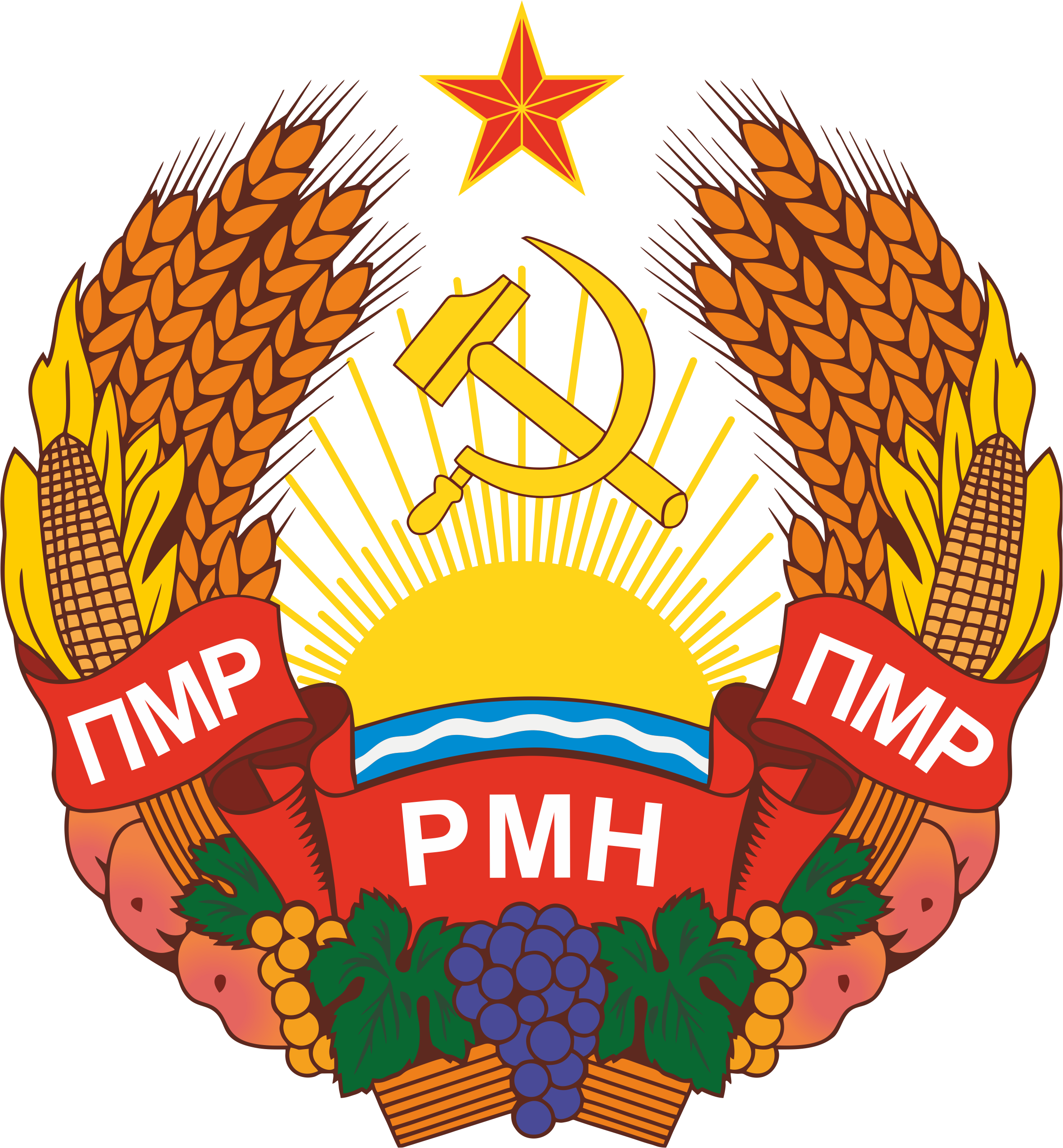

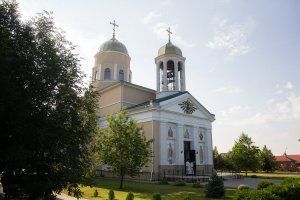

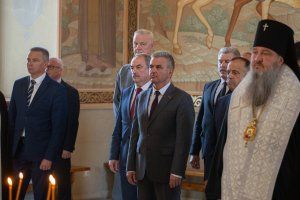
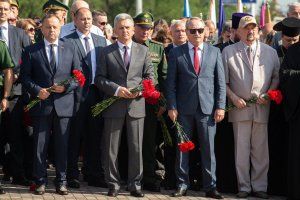
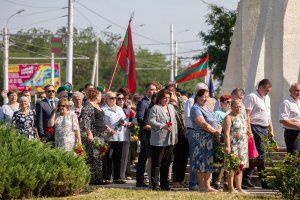
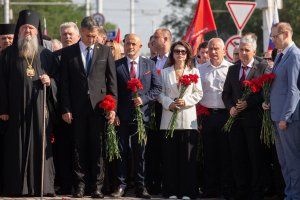
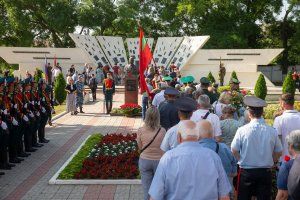
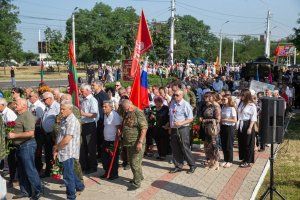
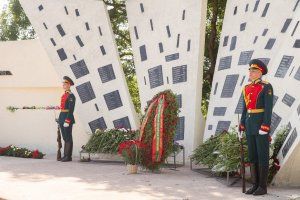
 Законы ПМР
Законы ПМР Постановления
Постановления Законопроекты
Законопроекты Анонс мероприятий
Анонс мероприятий 0 (533) 6-24-24
0 (533) 6-24-24